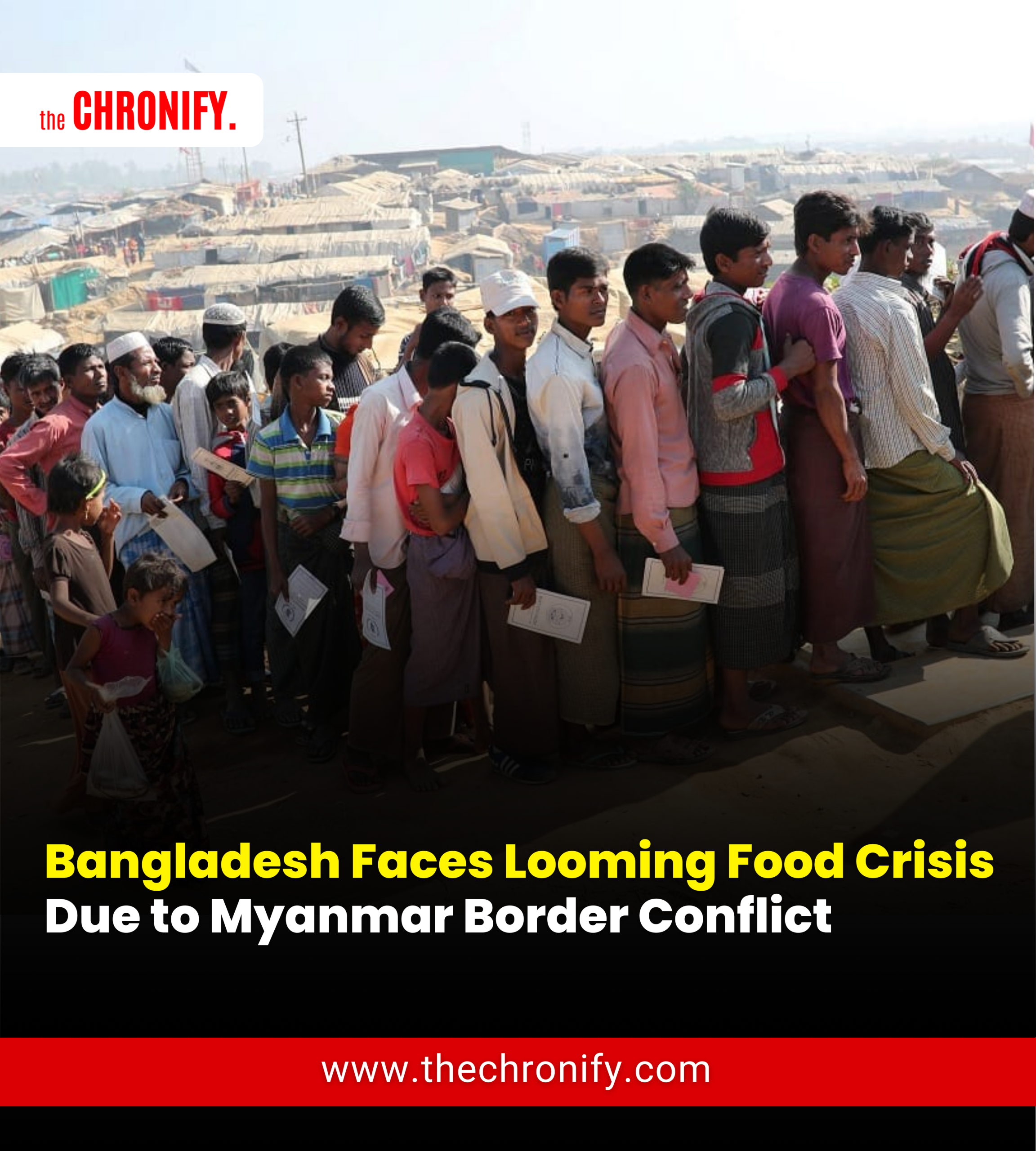Bangladesh is facing a looming food crisis as conflict intensifies along its border with Myanmar. The rise of the Arakan Army, a rebel group operating in Myanmar’s Rakhine province, has disrupted vital trade routes, threatening Bangladesh’s key rice imports.
The Arakan Army recently expanded its control over major land and maritime crossings, seizing the last Myanmar military outpost along the 270-kilometer border with Bangladesh. They also claim to have overtaken Myanmar’s western military command, destabilizing the region and halting rice shipments to Bangladesh.
Rice is central to Bangladesh’s diet and food security, and Myanmar has historically been one of its main suppliers. Now, with the Arakan Army controlling the key port of Mongdo and critical customs operations, Bangladesh’s rice imports are severely constrained.
To offset the shortage, Bangladesh has formally requested an additional 50,000 tons of rice from India. However, diplomatic tensions between the two neighbors—particularly over Bangladesh’s call to extradite former Prime Minister Sheikh Hasina from India—have strained relations.
Bangladesh’s foreign policy stance on Myanmar also complicates matters. At a recent regional meeting in Thailand, Bangladesh refused to engage with the Arakan Army and demanded Myanmar repatriate around one million Rohingya refugees currently in Bangladesh. In response, the Arakan Army has suspended the flow of rice and essential goods into Bangladesh, worsening the crisis.
The situation is further strained by a recent influx of 60,000 more Rohingya refugees into Bangladesh’s Cox’s Bazar, as the conflict across the border escalates. Combined with the aftermath of natural disasters and a fragile food supply chain, Bangladesh’s resources are under severe pressure.
India, for its part, has maintained that trade with Bangladesh is continuing normally, though it has yet to formally respond to the rice request. As regional tensions grow and Myanmar’s internal conflict deepens, Bangladesh’s food insecurity remains a serious and urgent challenge.

